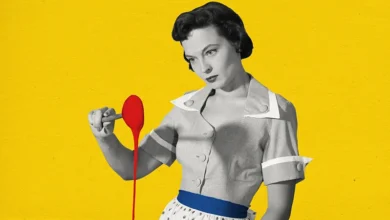Bollywood’s dirty secret: Paid reviews that are killing the industry

In October 2024, when director-producer Karan Johar’s Dharma Productions was gearing up nervously for the release of its Hindi-language film Jigra [Courage] in theatres, few knew that the 45-year-old production house, which has made some of India’s most loved films, had been struggling to survive.
Since 2019, most of Dharma’s films had not done well, and only one of the four films they released in theatres in 2024 had recovered some money.Dharma did its best to maintain the illusion that Jigra was going to be a hit. A few weeks before its release, it put out the film’s poster and trailer. On its social media handles it claimed that the trailer got more than 40 million views in 24 hours and shared fans’ excited reactions: “Goosebumps all over,” said one. “Absolute banger,” chirped another.
But most of these comments were from content creators and people connected with the movie or its stars.
On October 7, four days before the film’s release, Johar issued a statement to “Dear members of the media”, saying that henceforth Dharma would not hold pre-release screenings of their films, typically held for critics a day or two before a film’s release.
That was a big blow to the growing legions of YouTubers, vloggers and influencers who have taken to reviewing films on social media. Johar was basically telling them that he was no longer going to pay for positive reviews.
“It is an open secret in the film industry that 70-80 percent of the reviews are paid reviews,” a senior executive with Yash Raj Films (YRF), Bollywood’s venerable production house known for hits like Dilwale Dulhania Le Jayenge, told Al Jazeera on condition of anonymity. “Paid reviews are very much a part of this business as any other business,” he added.
Al Jazeera spoke with more than 20 film professionals, critics, PR executives and social media reviewers who confirmed that paying for puffery and hype is the norm in Bollywood and struggled to name films that had not paid for reviews.Most agreed that reviews can’t turn duds into hits, but said that reviews can boost or shrink a film’s business by 10-15 percent in the first week, especially now when reviews go viral before a film’s release.
Producers and actors pay for positive reviews in the hope that they will create a word-of-mouth effect – film marketing’s Holy Grail – and carry the movie in the first week.
“There’s a menu card, literally. You pick what you want, and there’s a rate for everything,” the YRF executive said, pointing out that his was probably the only production house that didn’t do pre-release screenings and does not pay for reviews.The deals for paid articles with established media organisations, some entertainment portals and a few well-known trade analysts are formal, struck in advance and can cost anywhere between five million rupees ($57,741) to 50 million rupees ($577,410). Deals with established media organisations don’t usually include film reviews, but there is often a softening of tone in the bad ones when deals are struck. Or as everyone in Bollywood loves to say: “Negativity was managed.”
Deals with influencers and some individual critics are often cash-only and are negotiated around film previews. The lower the excitement about a film, the higher their price.
But lately, some cracks have started to appear in that business model.
It’s ‘complete extortion’
So far, production houses have chased social media critics and influencers, flown them to Mumbai for previews, put them up in hotels, gifted them iPhones and paid them to write positive reviews.
“But more and more people spring up every week. And now it’s got to a point that if you don’t give money to some of these guys, they will start slamming your film. It’s complete extortion,” a film director said.
That was the experience for Dharma Productions as well. With its finances already bleeding, the harassment and extra costs had begun to pinch, and the company decided that it was time to put a stop to it, a source close to Dharma told Al Jazeera.
Jigra was released on October 11 to mostly negative reviews and trolling. While Dharma Productions eschewed the influencers, it maintained its deals with the established media publications. On its social media handles, it publicised posters with high star ratings from those media houses and reviewers, the very posters that, Johar has admitted in public, are kept ready before a film’s release.










